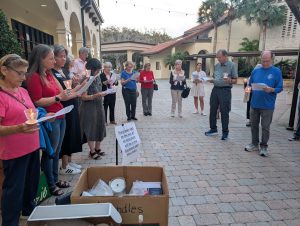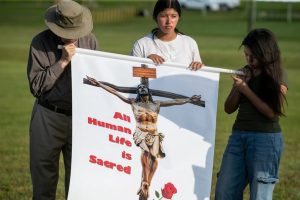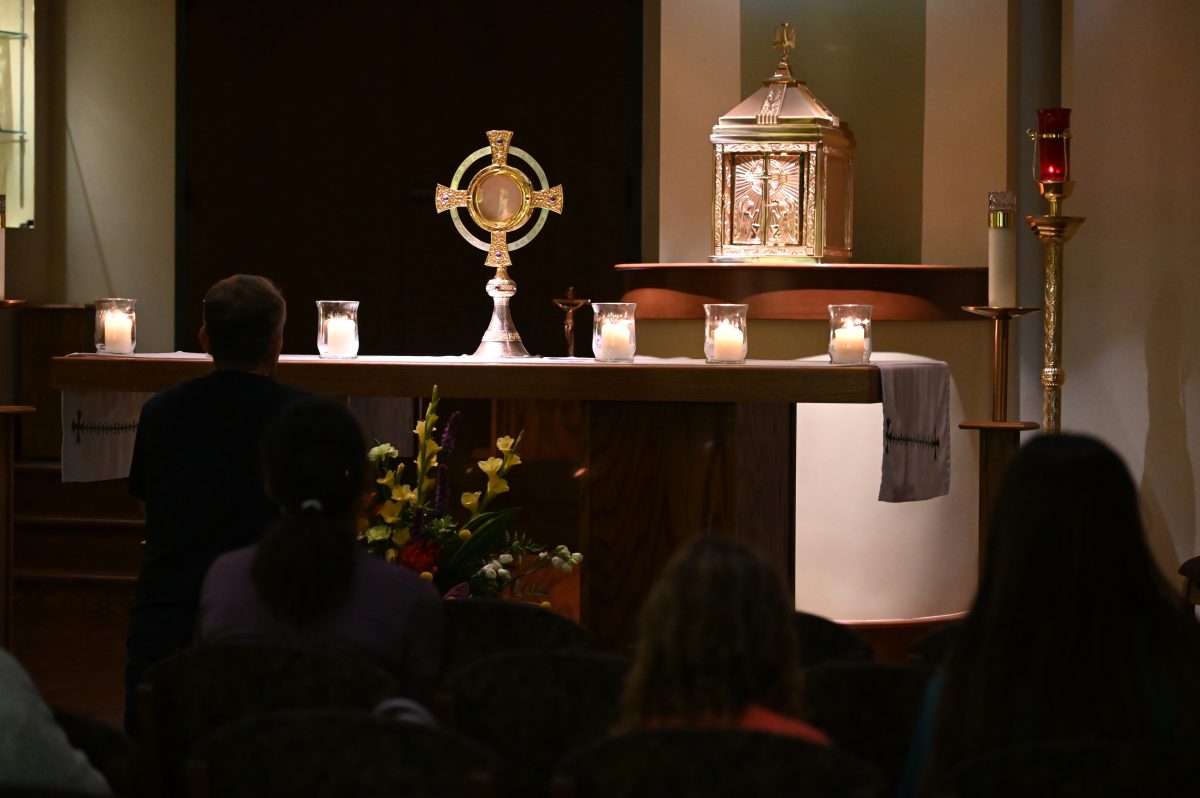ORLANDO | The execution of Kayle Bates looms in Florida’s future Aug. 19, 2025. He is set to be the 10th person to be sentenced to death since the start of the year.
For those Catholics who recall growing up with acceptance of capital punishment as a state’s legitimate option for safeguarding citizens, they might struggle with Pope Francis’ 2018 declaration that the death penalty is no longer necessary and wrong.
After the release of Evangelium Gaudium where Pope Francis ad- dressed the issue. He wrote a person possesses inherent dignity, unaltered by their sin, because they were created in the image and likeness of God. He went further in opposing the death penalty as he modified the Catechism of the Catholic Church (CCC 2267).
“Recourse to the death penalty on the part of legitimate authority, following a fair trial, was long considered an appropriate response to the gravity of certain crimes and an acceptable, albeit extreme, means of safeguarding the common good,” Pope Francis wrote. “Today, however, there is an increasing aware- ness that the dignity of the person is not lost even after the commission of very serious crimes. In addition, a new understanding has emerged of the significance of penal sanctions imposed by the state. Lastly, more effective systems of detention have been developed, which ensure the due protection of citizens but, at the same time, do not definitively deprive the guilty of the possibility of redemption.
“Consequently, the Church teaches, in the light of the Gospel, that ‘the death penalty is inadmissible because it is an attack on the inviolability and dignity of the person’ (Francis, Discourse, Oct. 11, 2017), and she works with determination for its abolition worldwide.”
Then, as recently as 2024, Dignitas Infinita, published by the Dicastery for the Doctrine of the Faith, stated how the death penalty “violates the inalienable dignity of every per- son, regardless of the circumstances.”

Meghan Collins leads the Peace and Justice Ministry at St. Margaret Mary Parish in Winter Park. Even before her arrival in 2003, parishioners gathered to pray for those about to be executed, their victims, and families. Over the years she has received negative mail and even had someone remove her sign announcing the vigil twice.
“It seems to be something that divides people on life issues,” she said. “No issue is pre-eminent over others, but that seems to be a struggle for people.”
She offered the example that while someone can show great pro-life support against abortion, the same does not apply to capital punishment.
Father Fred Ruse is a longtime advocate for life. He recalled returning to the diocese after years of missionary work in the Dominican Republic. Seeking to do their part in upholding life issues, his staff at Our Saviour Parish in Cocoa Beach invited parishioners to a dialogue session on the death penalty.
“That was enlightening for all of us. Some people were for, against, some on the fence. But they listened to each other,” he recalled. “They were gracious and kind. One of the people for the death penalty asked if we could pray together. The conversation led us to that point. It is what can be a long-term process of conversion. But it has to have that element of inviting people to sit down and talk about it in a way that is non-judgmental, non-confrontational, non-emotional, but listening,” he said.
To Catholics still struggling with the Church’s position on the death penalty, Father Ruse said, “I think it makes sense to be struggling with it because for so long the Church has had the position that the state has the authority to make the decision. And Catholics have, generation after generation, been good students. They’ve listened to what the Church taught in terms of its deference to the state and its authority over matters like this.”
He said it is a “matter of the conscience and formation of our relationship with God.” “Jesus, the one who we follow was a victim of capital punishment. You would think that would speak to us with greater sensitivity.”

He said instead we focus on the issues of the state and living in the shadow of the Old Testament where it was an eye for an eye. He said Catholic Social Teaching calls every Catholic to action and “to uphold the dignity of every human person.”
“Jesus struggled with bringing folks to a different view and that’s still a challenge,” Father Ruse said. “Every experience around us has an open- ing. The Spirit has made it so. These issues are so essential to our living the Gospel, for us to reflect upon and deepen our own conversion.”
In the northeastern part of the diocese, Father Phil Egitto and his parishioners from Our Lady of Lourdes in Daytona Beach are planning a bus trip to Starke Aug. 19, Kayle’s scheduled execution date. They will pray, sing, comfort and mourn.
It’s something Father Egitto has been doing for more than 20 years, ever since college. After the moratorium on the death penalty lifted, he thought, “If I’m going to live in the state of Florida where people are being killed in my name, I need to go to the executions and say, ‘Not in my name,’” he said.
Over the years, more of the faithful joined him becoming witnesses to faith and the belief that God is the ultimate judge.
“Our church has a passion for life. As a person preaching the Gospel, I’m a leader, so I lead my community in the cause of the Kingdom and that’s the cause of justice,” he said. “I think it’s important, if we’re going to live our faith and not just talk about it, that we do it. For me prayer is action; living my faith is action. It’s not just something I talk about; it’s what I do. I believe the Gospel calls us.
He also encourages parishioners to write to the governor and their representatives to enact change.
Anne Casey is a parishioner at Our Lady of Lourdes. She tries to protest every execution. There are times she really doesn’t want to but thinks about the conditions on death row and realizes her inconvenience is small. “Life without parole is a horrible punishment in and of itself,” she said. “The idea of us murdering somebody who murdered somebody else seems completely wrong. And sometimes the state gets it wrong.”
To her point, 30 people have been exonerated for being wrongly convicted in Florida. Reasons cover everything from people being coerced to testify to delays in processing appeals until they were too late, and even DNA results proving innocence being declared inadmissible.
Peggy Canary has been a St. Margaret Mary parishioner in Winter Park since 1985. She recalled “accepting of the idea of capital punishment” growing up. Over the years, she began reading biographies of the murderers. She learned most were victims of trauma themselves or suffered from mental illness or handicaps. “If killing is wrong, how does it make sense we kill?” she asked herself. Then she read about the series of botched executions, leading to the change from the electric chair to lethal injection in Florida. It became even harder to accept this was in line with a Gospel of forgiveness and redemption.
Bishop John Noonan worked in prison ministry in Miami and recalled an experience that brings home this point. He said a young man who committed a double homicide and was likely to go to death row told him, “I don’t mind if I get the sentence of death because I’ve made my peace with God. What I worry about is all these other guys here who haven’t been given that opportunity to make peace with God before they’re executed.”
“That is the question,” Bishop Noonan explained. “Do we give people the opportunity to find God in their life before they execute them? We’re condemning them to death, but we’re also condemning them to what? God’s grace is more important than the death penalty.”
To participate in a vigil or holy hour to pray for those who will be executed, their victims and families, you may find listings of parishes here.
By Glenda Meekins of the Florida Catholic staff, August 14, 2025

